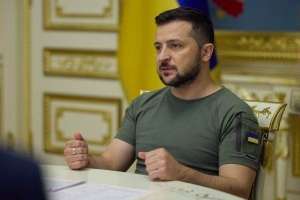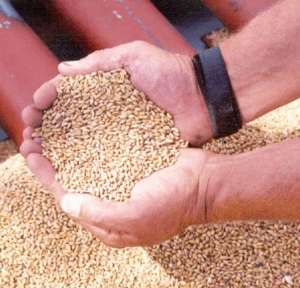Reporter: The results for 2012 are very good, especially given this period of crisis. How long has Agricover Credit IFN been active on the market?
Robert Rekkers: The net profit of Agricover Credit IFN last year reached 11.2 million lei, up 46% compared to last year. The value of the loans granted has advanced to 413 million lei, up 38% over 2011.
Created in 2008, Agricover Credit IFN is the only non-banking financial institution in Romanai that provides financial products dedicated exclusively to farmers in the harvest and zootechnical sectors.
The idea of providing financing to agriculture was born earlier, but it only became concrete when demand has expressed itself in a real and sustainable way. Many farmers have sought and are still looking for short term funding, working capital, and increasingly, there is demand for capex (expenses for investments), new equipment, second-hand equipment.
For example, "the loan for second-hand equipment" which was launched in March is already enjoying a major success among farmers.
Agricover Credit IFN also offers financing for acquisitions of arable land.
We are not interested in financing the acquisition of land for real estate, just for arable land, used in agriculture.
In the Agricover group, we have a division for inputs, which sells products intended for agriculture and implicitly for farmers - fertilizer, pesticides, seeds, diesel fuel.
Farmers buy these inputs from us, and then they produce the merchandise, namely the grains. Agricover offers storage locations, we have a storage capacity of approximately 7-800,000 tons.
Thus, "Agricover" provides a full range of services: with the money they borrow from us, farmers can buy inputs, they can produce and then they sell the grains to Agricover, who gives them further to the processors.
Reporter: Agricover is an intermediary.
Robert Rekkers: "Agricover" is an intermediary for vegetal products, as well as for zootechnical products. The groups is also very active on the animal breeding segment - swine, and increasingly, dairy cows.
We buy, we provide financing, we sell to farmers, who in turn breed the animals - swine or cows, and we then take over the merchandise and resell it. It is the same concept as it is for the vegetal products.
Reporter: Basically, Agricover Credit IFN comes to the aid of farmers and grants them loans.
Robert Rekkers: That's right. Slowly, the business has grown. When I reached the Board of Directors of Agricover, we decided to continue our strong growth on the lending segment.
We want to grow and to support the access of farmers to financing.
As you know, banks are in a less favorable situation at the present time, and bank employees do not know farming businesses very well, or collaterals, or the structure.
The universal bank model is only fit for 5-6 banks in Romania, for the rest of them it is no longer valid, they need to focus on specialization.
Agricover has a database of 3500-4000 customers that are working with the group. We know everything about the farmer: who they are, how they lead, who they are, how much land they have, how fertile the plot of land is, how big their output is, what equipments they have.
Reporter: Do you know their needs and how much money they would need?
Robert Rekkers: We can anticipate that. In fact, financing is an input for the farmer. He needs the money to produce.
For this year, we estimate a 33% increase in investments, and we want to attract at least 400-500 new customers. The first three months of this year confirm this trend.
Reporter: Are you considering creating a grains exchange?
Robert Rekkers: No. I don't know if an exchange would be much help in Romania. There are already enough international exchanges.
Reporter: Do customers have confidence in the products you offer, considering that most of them don't know the difference between the banking system and an IFN (non-banking financial institution)? Furthermore, there is growing lack of confidence in the banking system.
Robert Rekkers: First of all, we do not have a network of branches, like banks do.
Agricover Credit IFN has a mobile team of specialists, that deal with the requests for financing. Our salespeople go to the farmers, to their farm, to present them our offer.
We make decisions very quickly, when it comes to the evaluation of the application, the level of bureaucracy is far lower than in the case of the bank. We have a promise that they will get their answer in seven days for the loan.
This is unlike the bank, where the farmers have to wait for at least a month.
Our customers need a partner that is flexible, that is quick and unencumbered by bureaucracy.
Obtaining the funding is subject to a series of conditions, such as the surface of the plot of land owned, the experience and age of the farmer, as well as the equipment of the farm.
So far, banks have not financed the acquisitions of land. They are now beginning this activity, but they are asking for a lot of collateral guarantees that have no connection to the farmer.
Reporter: Banks have begun discovering the area of agriculture for financing.
Robert Rekkers: it is true that there is an increasing number of loans for financing agriculture. Many banks already have products in their portfolio for financing agriculture.
But for the most part banks have mostly pre-financed the APIA program, they have co-financed European funds.
My honest opinion is that in fact, until now, banks haven't financed agriculture, they have just lent money to the state. The money is coming from the government.
We are not just speaking here about the risk that a bank takes on when they finance an agricultural project, but about the risk that the bank has when it comes to the state.
Banks don't have a "know how" when it comes to farmers, they don't know how the business works, what its challenges are.
Reporter: What other products do you want to launch?
Robert Rekkers: In the coming three years, we want to launch a new product every three months.
In March, we have launched the loan for second-hand machinery. We want to launch another product at the end of May, because that is when we hope we will sign and international financing agreement with a fund, for an important amount.
The third product will be launched in August, and the last for this year, in September -October.
So, in the coming three years, we will launch 12 products for farmers, which aren't based on APIA pre-financing or European funds.
We want to be as creative as we can and to become leaders in financing agriculture, through innovative products.
Reporter: You don't work with European funds?
Robert Rekkers: IFNs aren't accepted to conduct payments as par of the APIA or payments for European funds.
We do offer financing based on the APIA program, but in cooperation with a bank.
Reporter: How many employees do you currently have?
Robert Rekkers: We have a team of approximately 45 people, we have regional managers, sales managers, sales agents, who are constantly "in the field" selling our products.
We want to double this team in the coming years. We are considering creating a regional sales force.
At the central headquarters we receive all the applications, which we review with a loan committee, we have a risk as well as an audit department, and then we approve or deny the loan.
We are supervised by the NBR. Just in December-January, we had an investigation from the NBR, and the report was favorable. We have about 1% in non-performing loans.
Reporter: What can you tell us about the foreign funds?
Robert Rekkers: The IFC, the investment division of the World Bank, is a very important partner.
Last year, Agricover Credit IFN has attracted 12.5 million Euros from International Finance Corporation and 8 million Euros from the German fund EFSE, as well as over 147 million lei from the domestic banks.
We are conducting talks with an international bank and we hope to sign an agreement with an international bank at the end of May. We are talking about a sizeable amount with them!
The number of farmers that have received loans has increased 48% compared to 2011.
Reporter: How do you think the price of arable land will evolve? In 2014, after the liberalization of the plot of land market and the foreigners will have easier access to the acquisition of land, there will be more demand?
Robert Rekkers: "Agricover" has created clubs of farmers. In every region, we have organized a club of farmers that work with us. We already have 180 members all over the country, clients with at least 1000 hectares. We give them all kinds of VIP facilities, we provide them with research on what is happening in the market.
"Agricover" is the only institution that provides clients with analyses about agriculture - cereals, prices, volumes, trends.
For example, I write the financial part of this report. I am referring here to the evolution of the currencies, of interest rates.
For example, I write about the trends in terms of arable land. This year, we expect an increase in prices of 15-20%.
During this period, there are several trends of growth. One of them is due to the liberalization of the access of foreign individuals for the acquisition of plots of land.
Another rising trend is caused by the fact that land prices are still cheap compared to Western Europe, and another aspect to consider is the availability, in fact the fragmentation of the land. You can't buy large plots of land and there is a trend from the farmers to compact their surfaces.
Usually, a farmer that has a plot of land under lease would like to own it. But it is very hard to concentrate plots of land.
That is why there will continue to exist a rising trend when it comes to the acquisition of plots of land available for sale, for increased efficiency.
Last but not least, the price of grains has risen greatly last year. It is true that it is currently dropping, but it still remains high.
Up until now, the banks did not finance true agriculture projects, but they have started to, and as a result, this will bring more liquidity to the market, so farmers will have more money for the acquisition of land.
I think that this will lead to the increase of the price of arable land. The best areas are Ialomiţa, Călăraşi, Teleorman, Banat, Bihor. But we need to be careful or else this buying of land could become a speculative business.
Reporter: What is the profile of the client of Agricover?
Robert Rekkers: We do not work with individuals, only with companies or Certified Self-Employed Individuals, that own over 100 hectares.
Even if a client has over 100 hectares, but he is an individual, we don't work with him, because we do not have regulations approved by the NBR for individual people. As a result, we focus on individuals.
Reporter: One of the major problems of the Romanian agriculture has been and remains the irrigation system.
Robert Rekkers: It is true that there is no national irrigation system and that this is a problem for agriculture.
It doesn't make sense for a farmer to invest money in an irrigation system on a plot of land that he is leasing.
But if the farmer has their own land, we will finance their investment in an irrigation system.
Another difficulty that farmers encounter is the registration of plots of land and in fact, I think that this is the number one problem.
Reporter: So do you offer products for investments as well?
Robert Rekkers: We offer our clients products for working capital, in lei. We can also offer financing in Euros or in lei for investments, acquisition of land, equipment, irrigation. We have products for refinancing of the crop, we can provide financing based on real estate guarantees, mortgage guarantees, we can finance based on inventory etc.
Reporter: Do you have insurance for catastrophes, natural disasters, floods?
Robert Rekkers: Agricover owns its own insurance broker, where we have a very good team of experts. We offer all kinds of products for insuring crops, risks.
Reporter: You basically have a small bank here.
Robert Rekkers: We have a financial conglomerate here - finance, insurance etc. We are not a bank because we can't attract deposits. Our strategy is to continue to develop this INF heavily, by providing funding.
Reporter: What can you tell us about your interest rates?
Robert Rekkers: The interest rates for lei have increased throughout the Romanian banking system, and the ones charged by Agricover Credit IFN are not far from the banking sector.
If a customer comes up with good collateral, the interest rate we charge will obviously be lower. Where the risk is lower, it is obvious that we are going to charge a higher interest rate.
Reporter: What are your forecasts for 2013, in terms of profit, business?
Robert Rekkers: We want to grow by at least 30%. We are increasing our investments, the number of customers, the team, the products and we also have some surprises.
Reporter: What is your view on the development of the Romanian agriculture in the future?
Robert Rekkers: I think that it is very important for the weight of agriculture to increase to over 10% of the GDP.
There are at least three factors that are extremely important. The first is extensive growth - unlabored land that will start being labored, and then intensive growth - labored land that will start producing more because far more performing technologies are used.
The third aspect is that agriculture is one of the few sectors with extremely high potential and Romania should specialize in that area.
Massive investments in agriculture need to be made because this is the future, especially that the food crisis is taking shape.
Romania has the potential to become again an important player in the area of agriculture.
Reporter: What was the move from the Banca Transilvania to Agricover like?
Robert Rekkers: I've liked the banking sector a lot, but I like the agricultural sector even more, there are many opportunities.
I am feeling very well here.
Reporter: Your sudden departure from the management of BT came as a surprise to many. Can you tell us anything about this?
Robert Rekkers: No. I have agreed not to speak publicly about this. I am proud of what I have achieved at Banca Transilvania, the results are good, it's been a trip of almost 10 years. I am proud of the results of the bank, and after my departure they have remained very good.
I congratulate my former colleagues for their results. I know that the banking sector is going through difficult times, but I have faith. I remain a shareholder of Banca Transilvania, but I do not want to speak about what has happened. I am at a new stage in my life, agriculture. This is the engine.


















































